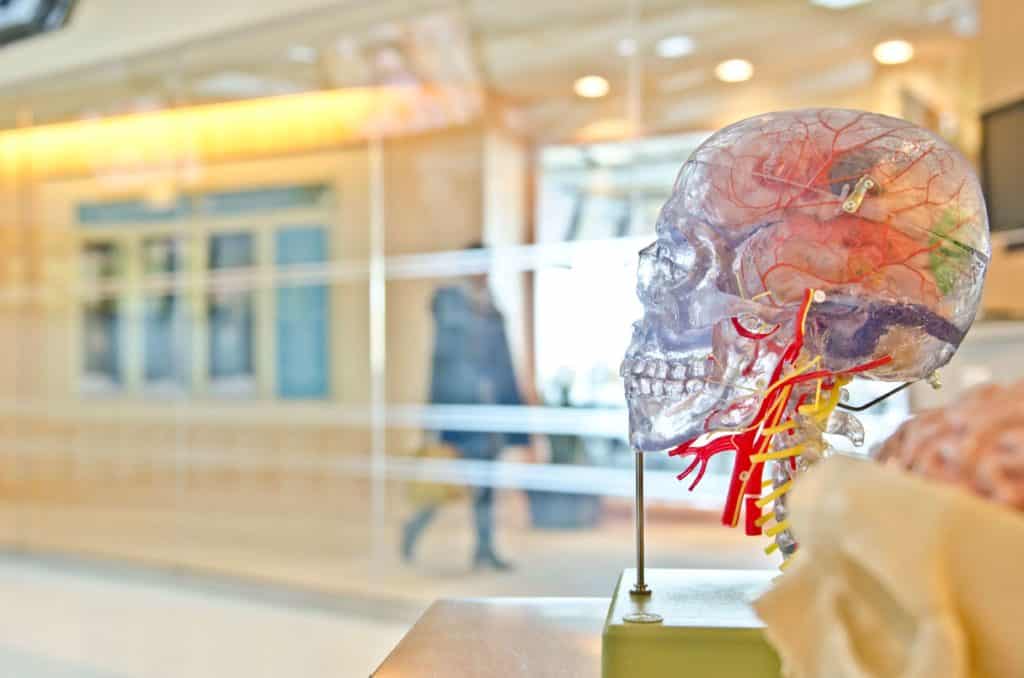People who sustain severe head injuries are more likely to have shorter lifespans and neurological and behavioral impairments that last a lifetime. Along with cognitive and memory issues, they could also have post-traumatic seizures. Sadly, there are few medically effective therapy options available for TBI sufferers.
Traumatic brain injuries are notoriously difficult to cure and completely change a person’s life. According to a recent study, medicinal marijuana therapies may be able to stop future harm and cure lingering symptoms.
An external blow to the head that temporarily or permanently impairs average brain function results in a traumatic brain injury (TBI). The most frequent damage is a concussion, although any degree of TBI may cause disruption in a patient’s life and result in chronic, incapacitating symptoms.
Many TBI patients are interested in the possibility of CBD and THC, the chemical components present in medicinal cannabis, because of the dearth of effective pharmaceutical therapies for the condition. A rising number of patients also contemplate medicinal marijuana as a means to address persistent issues, even though promising research has concentrated on treatments immediately after the original damage. Continue reading to learn why you may want to consider using cannabis as a therapy option if you or a loved one are presently dealing with TBI.
Learning about Traumatic Brain Injury
TBI is brought on by a severe head injury from a bump, blow, or jolt that forces the brain to crash with the inside of the skull violently. Brain damage ultimately results from this.
A severe brain injury may induce the release of neurotransmitters and chemicals that cause inflammation, tissue damage, blood vessel damage, cell death, and chemical imbalances. The “second injury cascade” refers to this chain of brain reactions that causes various neurological issues linked to TBI.
If you have a concussion (mild TBI), you can experience symptoms that last for a few days or weeks, and TBI, however, may cause fatalities or permanent consequences in extreme instances. Additionally, those who encounter repeated TBIs may develop a buildup of the tau protein, leading to chronic traumatic encephalopathy (CTE). This brain disease is characterized by degeneration. Due to the symptoms it exhibits, CTE may be catastrophic and have an impact on not only the sufferer but also their relatives.
The Challenge of Using Pharmaceuticals to Treat TBI
After a TBI, the brain undergoes immediate and long-lasting alterations, including releasing glutamate, the generation of free radicals, and the synthesis of other inflammatory substances. These substances can potentially lead to neurological problems that might afflict individuals for months or years, including swelling, malfunction, neurotoxicity, cell death, and more.
TBI may have a wide variety of short-term and long-term effects. Seizures occur in around 20% of individuals with brain hemorrhage after a TBI. Patients can believe that their personalities have altered or that they have little control over their emotions. Depression and anxiety are widespread. TBI may also result in persistent spasticity, which can impair speech or create problems with movement.
TBIs are pretty standard, yet there are few effective therapies available. For moderate instances, the standard first-line treatment is usually only physical and mental relaxation. However, more severe cases include managing oxygen and blood pressure, getting rid of blood clots, and even performing surgery to relieve stress within the skull.
Patients mostly regain function via rehabilitation treatment. Typical drug choices may lessen seizures, clotting, or related anxiety, but they don’t always promote molecular healing. Although no “concussion pill,” pharmacological therapies are still being researched.
Even though this choice alone may have crippling adverse effects, doctors may depend on a mixture of drugs to assist patients in managing their continuous and often lifelong symptoms. In many circumstances, patients have found that medicinal marijuana may cure their chronic illnesses and give them back control over their lives.
How cannabis may mitigate TBI damage
The problem is that treating and managing the signs and symptoms of traumatic brain damage has proven to be a challenge for medical professionals.
But it is now apparent that cannabis may provide a solution for patients, thanks to the work of scientific experts like Professor Yosef Sarne. THC administration may aid in preventing long-term brain damage, according to a 2013 research by Tel Aviv University’s Sarne and his colleagues.
That’s not all, however. Additional ways that medical marijuana may help those with traumatic brain injuries include the following:
Management of symptoms
Cannabis may assist TBI sufferers in controlling their symptoms, which may provide them with respite. According to research, cannabis-based medications may considerably reduce seizure frequency.
CBD, a non-intoxicating substance from the cannabis plant, has also been demonstrated in preclinical studies to have anti-anxiety and antidepressant properties.
Cannabis may help shield you from serious harm
Did you know that if you have a head injury, having THC in your system—the psychoactive ingredient in marijuana—significantly increases your odds of surviving?
Endocannabinoids like THC and CBD are widely distributed throughout the human brain, and these naturally occurring chemicals support the functioning of your neurological and immunological systems. Even after brain damage, evidence suggests that the body still produces these endocannabinoids to defend itself against stress.
Research supports the neuroprotective abilities of endocannabinoids, which aid in the recovery of your brain and nervous system after trauma. Even though additional data from studies involving animals are still needed, the results thus far indicate that boosting endocannabinoid levels in the body after traumatic brain damage may aid patient recovery.
Endocannabinoid levels are increased by the CBD found in the cannabis plant. Additionally, cannabis’s THC functions identically to that of the body’s naturally produced endocannabinoids.
Cannabis may lessen inflammatory brain injury.
According to research, cannabis interacts with the endocannabinoid system to have beneficial benefits. The endocannabinoid system assists the body in adjusting to environmental stress signals. Endocannabinoids have been shown in preclinical studies to reduce inflammation after brain damage.
The cannabinoids THC and CBD, both present in cannabis, are also thought to have anti-inflammatory and neuroprotective effects. Research suggests that delivering CBD therapy as soon as oxygen is depleted might lessen brain damage. According to a Pediatric Research research with newborn pigs, one impact of providing CBD after injury was decreased nervous system damage, brain edema, and seizures after the first injury.
Development of new brain cells
Cannabis may promote the development of new brain cells. According to a study, cannabis components may aid mood recovery after damage. Traumatic brain injury often causes anxiety and sadness.
In a 2005 study, rats were treated with synthetic THC. The study’s findings demonstrated that frequent treatment of this cannabinoid caused the hippocampus to generate new brain cells (a critical brain region linked with memory, learning, and the autonomic nervous system). This area of the brain is impacted by depression and persistent anxiety caused by TBI.
In contrast to other medicines, marijuana aids in promoting neurogenesis, according to the study’s author, Xia Zang. Cannabis may thus provide treatment for those struggling with mental health and mood issues brought on by traumatic brain injury.
How TBI sufferers in New York City may acquire medicinal marijuana
In New York, it is legal for those who suffer from many debilitating diseases to own and use medical cannabis. You must be a patient who resides in New York State or is getting medical treatment there. To obtain medical cannabis treatment, you must also be approved and certified by a qualified doctor.
A valid ID will be given to you, allowing you to purchase authorized and recommended medical cannabis products from licensed shops.


